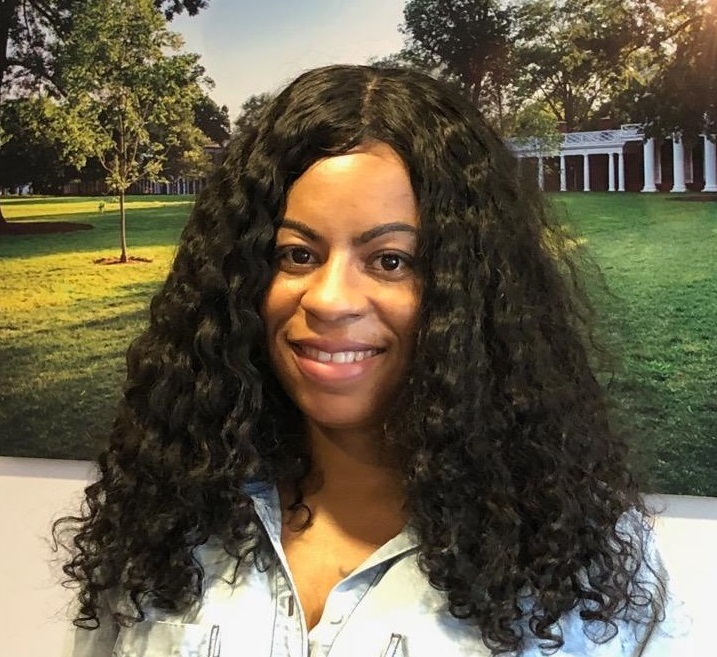Uterine fibroids are a type of non-cancerous growth that form in the muscle cells of the uterus. They are common – some studies show that up to 80% of women will have fibroids at some point in their lives – and for many women, they don’t cause any symptoms. But for some they can cause heavy and painful periods, irregular periods, and other symptoms. Click here to learn more about uterine fibroids and different uterine fibroid treatments, including uterine fibroid embolization.
For years, Rita Griggs suffered from heavy and painful periods. She had periods as often as twice per month, and she was tired even though she slept for hours and hours. It was hard for her to work and be a mother to her children.
Rita was diagnosed with uterine fibroids, which are a common and non-cancerous growth in the muscle cells of the uterus. Her gynecologist offered to perform a hysterectomy to remove her uterus and the fibroids. But Rita wondered if there was another, less invasive option. That’s how she learned about uterine fibroid embolization (UFE) (also called uterine artery embolization) and the interventional radiologists who perform it at UVA Radiology Vein and Vascular Care Gainesville.
We asked Rita about her experience with uterine fibroids and uterine fibroid embolization.
How did you find out about uterine fibroid embolization (or UFE)?
Rita: I was seeing my regular gynecologist, and like most gynecologists, they offer hysterectomies for women with fibroids. Uterine fibroid embolization wasn’t even mentioned to me.
I didn’t want a hysterectomy, so I started researching on my own and UFE came up. I started reading about it and thought it would be a good option for me. I did a Google search of facilities nearby that could perform it, and UVA Radiology Vein and Vascular Care Gainesville popped up.
Why did you choose to have a UFE?
Rita: A lot of factors went into the decision for me. I personally don’t want any more children, but I didn’t want my uterus taken out, either. For people who want more children, UFE is a much better option. (Note: Pregnancy is possible after a UFE for most women. However, there are additional risks associated with pregnancy after a UFE. As always, speak with your care provider.)
COVID-19 was also a factor. Because UFE is less invasive, it meant less of a hospital stay, and that was a major reason for my decision.
But the main thing is that I didn’t want to have a surgery, and I didn’t want to be put under general anaesthesia. I’ve had a bad experience with anaesthesia before, and of course that’s not most people’s experience, but for me it was a major concern. Only being under moderate sedation (or conscious sedation) and having a local anaesthetic was important to me.
What was having a uterine fibroid embolization like?
Rita: Well first, every question I asked Dena (Menzel, Nurse Practitioner at UVA Radiology Vein and Vascular Care Gainesville), was answered, which was really important to me. The more I learned, the more that I saw that it was exactly what I was looking for.
The UFE was performed by Dr. Stanley Washington at Haymarket Medical Center. I only had to be in the hospital for 24 hours. I did have pain and needed pain medication, but not for a long period of time. Pretty much just immediately after the procedure. With pain medication, the whole experience was pretty comfortable.
What changes did you see after your UFE was performed?
Rita: I had immediate relief of symptoms. My first menstrual cycle was much better – not where you’d want it to be, ultimately, but I saw the difference and was very happy. My second cycle was actually heavier, but the third was better again. I would tell other women that it takes 3-4 months to see a complete difference.
Today, my period is way better than it was. I was getting it two times a month before, and my hemoglobin got as low as 7 g/dl (grams per deciliter). I could barely stand up sometimes – I was so tired and would sleep for hours and hours and still feel tired.
I just had an ultrasound to see the size of my fibroids. They didn’t shrink that much, but again, I have seen results in terms of how different my periods are.
What would you tell other women who have fibroids, or who might be interested in uterine fibroid embolization?
Rita: I would say, if you don’t want a hysterectomy, this is a good option. Doctors have guidelines about size and have to determine if you’re a good candidate, but for me, it was a great option.
As I saw, you get immediate results. But you also get improvement for up to a year – so I still don’t know exactly how much better it will get! But I’ve seen extreme improvement already.
Patients in northern Virginia: you can learn more about uterine fibroid embolization, performed by the interventional radiologists at UVA Vein and Vascular Care Gainesville, by calling 703-712-6062. Patients in Charlottesville or central Virginia: learn more about UFEs performed by interventional radiologists at UVA Health by calling 434-924-9401.



